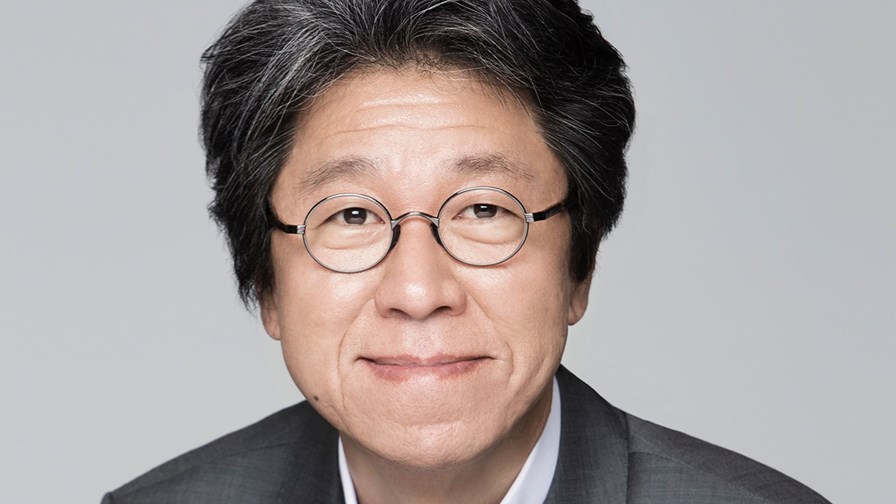
Oh Seung-pil, CTO and head of the Technology Innovation Division at KT Corp. (Source: KT Corp.)
- The new CEO at KT (Korea Telecom) is shaking things up
- He is revamping the Korean telco’s management structure
- A CTO has been appointed to head up a new technology innovation division that will be heavily focused on AI
- About 20% of middle management roles have been cut
When he was appointed as the new CEO of South Korea’s KT in August, Kim Young-shub highlighted the importance of building a team with information and communications technology (ICT) expertise that can help the operator to more tightly integrate IT capabilities (such as AI) with the telco’s services and aid its transformation from a telco to a techco: Now he’s started to put a new top team in place to achieve just that.
KT has named Oh Seung-pil (pictured above) as its CTO and head of the company’s new technology innovation division, the result of a merger between the operator’s IT division and its R&D unit (the Convergence Technology Institute). The new division has been created to “innovate the entire technology development process from the research stage to service implementation” with a particular focus on AI, which is seen as key to the development of new enterprise services. Oh has previously worked at Yahoo, Microsoft, and Hyundai Card/Commercial and will play “a central role in establishing KT Group’s IT and AI governance system,” the operator noted.
KT isn’t starting from scratch with its AI efforts: It has been developing AI-based services and applications for years already. In June, it outlined its extensive AI-driven service development strategy, pledged to invest 7tn South Korean won (KRW) (US$5.4bn) by 2027 “to strengthen [our] AI competitiveness for future growth”and set a target to generate annual revenues of at least KRW1tn (US$771m) from its customised AI services by 2025 – see KT to invest $5.4bn in AI service developments by 2027.
Then about a month ago, KT unveiled a GenAI service for enterprises. The offering, dubbed ‘Mi:dm’, includes different language models, ranging from “lightweight” to “extra-large” to make it suitable for various company sizes and purposes. According to the telco’s statement (available here in Korean), its full AI stack allows businesses to develop services using large AI models “at a reasonable cost”, removing the need to conduct separate developments and support learning infrastructure.
But it wants to accelerate its developments (and certainly won’t want to be trailing its local rival SK Telecom, which has already designated itself as an AI company and is investing accordingly). So KT is adding to its existing AI2XLab with a facility that will be known as its AI Tech Lab “to increase core technological competitiveness in the AI field,” the company noted in this announcement (in Korean).
In addition, the company has, as part of the technology innovation division, formed the KT Consulting Group, which it describes as “a group of experts with outstanding capabilities in the cloud, AI, and IT fields” that will help the telco “compete in the B2B market with expertise.”
The consulting team will be headed up by Jeong Woo-jin, who is, according to KT, “a digital cloud technology consulting expert with experience at Samsung SDS, Microsoft, and Amazon Web Services.”
The operator also plans to “recruit additional industry-leading experts from outside to strengthen [its] digital innovation and AI competitiveness.”
But it’s not a one-way human resources street at KT under Kim: The telco is cutting about 20% of its middle management layer at the assistant managing director level or higher to “ensure rapid, customer-oriented decision-making”. In fact, 48 assistant managing director roles have been cut (leaving 264) as well as 18 managing director posts (leaving 80 MDs).
The CEO noted that he expects the “reorganisation and executive reshuffle will be the starting point for KT to leap forward as a digital innovation partner” for its customers.
For the third quarter of this year, KT reported group revenues of almost KRW6.7tn ($5.15bn), up by 3.4% year on year, but its operating profit sunk by almost 29% to KRW322bn ($248m). It has 24.9 million mobile customers, of which 9.5 million are 5G users, 9.8 million are fixed broadband customers and 9.4 are million IPTV subscribers.
- Ray Le Maistre, Editorial Director, TelecomTV
Email Newsletters
Sign up to receive TelecomTV's top news and videos, plus exclusive subscriber-only content direct to your inbox.




